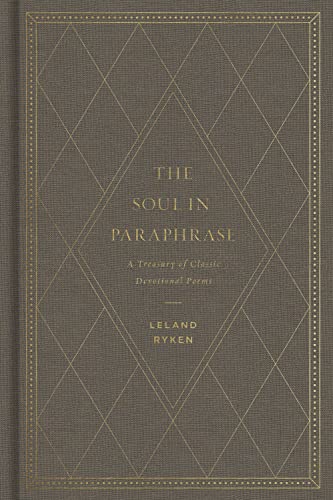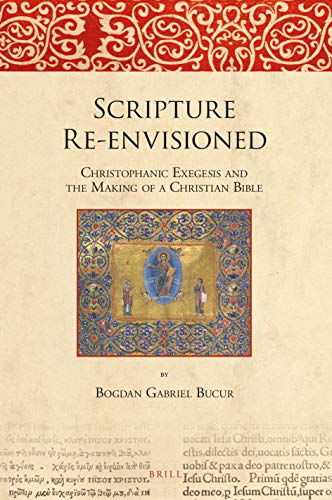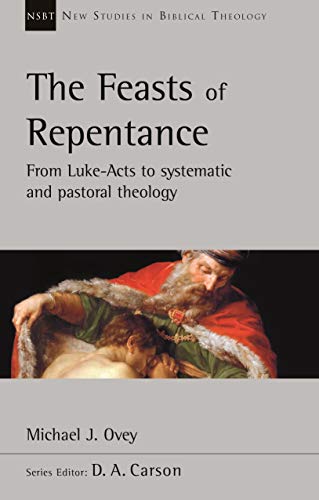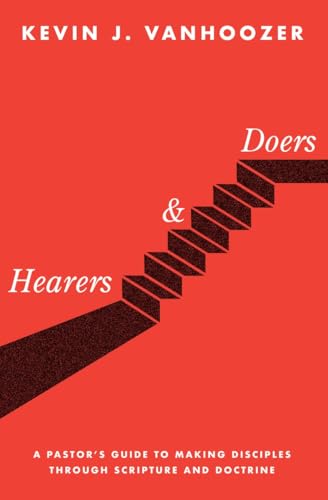The Soul in Paraphrase: A Treasure of Classic Devotional Poems
Written by Leland Ryken, ed. Reviewed By Kirsten BirkettI have always longed to be better versed, so to speak, in poetry. My mother had the advantage of being taught poetry at school—taught how to read it, to recognize the forms, and best of all to memorize large amounts of it. I believe there is a great value in this—not only in understanding better the nuances of language and how to express thoughts well, but also in appreciating that there are some ideas and feelings that are best expressed through poetry. My own more science-based education had rejected the ineffable as fairly worthless, or at best harmless entertainment; if it can’t be said in propositional prose, or better yet formal logic, it’s probably not really worth saying.
I unthinkingly carried this through into my theology. Paul’s letters, that’s what we most need; why isn’t the whole Bible like Romans? I am glad that a more mature view, indebted to wise teachers, has shown me the paucity of this approach to the Lord and his Word. The book of poetry under review has taken this a little further.
As Ryken points out in his introduction, this is not “inspirational verse.” Such greeting-card and sunrise-poster fare is, he says, “versified prose. The content is thin and confined producing … ‘bits and pieces’ poetry” (p. 13). In contrast, Ryken has edited a volume of “substantial” poems. The poems selected are devotional, in that the subject matter is to do with the religious aspects of life. They also generally have a devotional purpose, to prompt the reader to consider more deeply God and spiritual truth, to awaken “a greater love of God and desire to be like him” (p. 14). They are what Ryken calls “lyric”—that is, poems that are either “meditative and reflective,” or “emotional and affective” (p. 15). They express both thoughts and feelings. John Milton was so persuaded of poetry’s importance that he was willing to spend his life as a poet when ministry in the Church of England was closed to him. Indeed, many forms of literature—poetry, novels, visual media—have such a massive effect on emotions and therefore hearts, that we neglect a major part of effective communication if we concentrate all our witness to God only in (nonetheless essential) logical prose.
Consider, for example, this expression of the way in which discontent and running after worldly things keeps us from real riches:
Ten thousand absent things
Did vex my poor and wanting mind,
Which, till I be no longer blind,
Let me not see the King of Kings. (Thomas Traherne, Poverty, p. 140).
My sentence summary above has nothing of the emotive power of the poetic expression. Another poem similarly comments on the experience of the author’s house being destroyed by fire:
Then straight I ’gin my heart to chide:
And did thy wealth on earth abide,
Didst fix thy hope on moldering dust,
The arm of flesh didst make thy trust?
Raise up thy thoughts above the sky
That dunghill mists away may fly.
Thou hast a house on high erect,
Framed by that mighty Architect,
With glory richly furnished
Stands permanent, though this be fled.
It’s purchased and paid for too
By him who hath enough to do.
A price so vast as is unknown,
Yet by his gift is made thine own.
There’s wealth enough; I need no more.
Farewell, my pelf; farewell, my store.
The world no longer let me love;
My hope and treasure lies above. (Anne Bradstreet, Verses upon the Burning of Our House, p. 136)
It is one thing to know the doctrinal truth that because we have treasure in heaven, we need not fear loss of earthly goods; it is another to feel it as absolutely true in the heart. Poetry can help take our hearts there.
On another topic, consider some lines of George Herbert on why God make humans so restless:
“For if I should,” said he,
“Bestow this jewel also on my creature,
He would adore my gifts instead of me,
And rest in Nature, not the God of Nature;
So both should losers be.” (George Herbert, The Pulley, p. 92).
Had God given humans rest now, the poem expresses, we would not worship God, but idolize his gift. Here also is an echo of Augustine’s dictum: “our hearts are restless until they rest in you” (Conf. 1.1). The truth of this, and God’s mercy in making us so, is brought alive in Herbert’s work.
No doubt there is far more that a more expert reader than I could bring out to demonstrate the way in which the gift of poetry adds so much to minds and hearts in response to God. It is something previous generations understood very well, and too few do now; perhaps this is the reason for what I see as the one weakness of this volume, that the selection is all historical (the most recent poet is T. S. Eliot).
Why do we not read more poetry? Ryken points to one reason, perhaps, when he comments that “a poem that requires more pondering and analysis from us than a poem that requires less is a poem that yields more” (p. 16). The most moving and rich poetry is hard to read. It takes concentration and effort; I would also suggest that it takes more education in such kinds of reading than is offered in many modern educational systems. For this reason, it is valuable that Ryken provides a commentary and notes on particular words for each poem. I am very grateful for this help; my reading of the poems has been much more rewarding as a result.
What we also need is more exposure to poetry. The more we are moved by a poem the more likely we are to try another one; it’s as simple as that.
How might we achieve that? Amidst all the other things we wish our congregations to take up, dare we add an appreciation of poetry? That depends on context; but the occasional poem as part of a Sunday service, or before a Bible study, might not go astray. I can imagine sermons usefully quoting a few judiciously chosen lines of poetry here and there. It would have to be worth quoting; Ryken here has done the work of selection for us. Talented people might even set them to music; many classic hymns have developed that way.
As it is, I fear that poetry is generally confined to, and has a reputation of being for, the effete and learned, or cutting-edge trendy subculture. That is a shame, especially given our long Christian tradition of devotional poetry, as demonstrated in Ryken’s collection (his first poem is from the seventh-century farmhand-turned-monk, Caedmon). It is also a shame given what is often lamented in rigorous Bible-believing congregations, that we do not have enough emotional depth of Christian life. Poetry helps provides that depth. Let us take advantage of it.
Kirsten Birkett
Kirsten Birkett
Oak Hill Theological College
London, England, UK
Other Articles in this Issue
What are we to make of Cultural Marxism? This article seeks to answer that question, first, by outlining the key elements and legacy of classical Marxism; second, by exploring the neo-Marxism of Antonio Gramsci; third, by assessing the main ideas and impact of “the Frankfurt School”; and, fourth, by offering some reflections on (i) the links between these thinkers and various contemporary developments, (ii) the wisdom of employing the term Cultural Marxism, and (iii) how Christians should respond to the current “culture wars” that are polarizing the Western world.
The diverse essays in Stanley Rosenberg’s edited volume Finding Ourselves After Darwin: Conversations on the Image of God, Original Sin, and the Problem of Evil (Grand Rapids: Baker Academic, 2018) offer a Christian analysis of the human person in light of evolutionary thinking...
Do Formal Equivalent Translations Reflect a Higher View of Plenary, Verbal Inspiration?
by William D. MounceThe article begins by establishing five categories of translation theory and argues that functional translations like the NIV do in fact reflect the meaning of every Greek word, but not in the same way as formal equivalent translations do...







